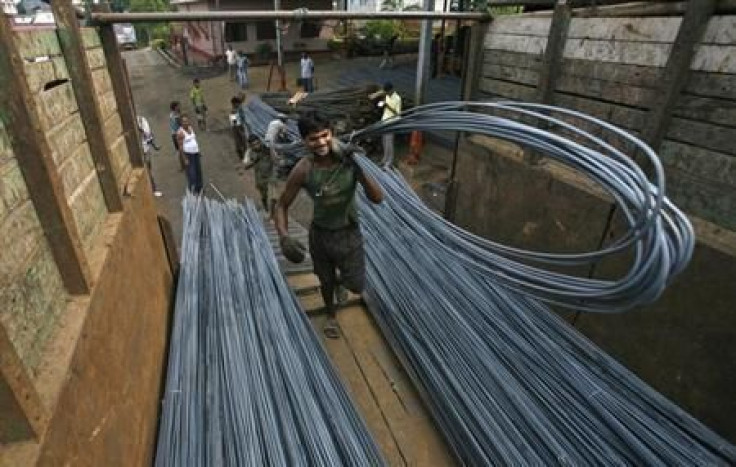India's Manufacturing PMI Expands At Slower Rate in January 2013; Power Outages, Weak Global Demand Curtail Output

India’s manufacturing sector expanded at its slowest in three months as the volume of new export orders eased from the previous month, according to the HSBC India Manufacturing Purchasing Managers' Index (PMI) prepared by Markit.
The HSBC India Manufacturing PMI -- a composite indicator that gauges factory output and operating conditions in the manufacturing sector -- showed that the country posted a reading of 53.2 in January, down from 54.7 in December, the slowest monthly gain in three months.
The index has remained above 50 -- indicating growth -- for almost four years.
Manufacturing activity slowed largely due to continuing weakness in the global market, particularly in eurozone countries, and domestic constraints, such as power shortages, the report noted. The slow recovery in the U.S. and the European economies have weighed on demand for India exports, which fell for the eighth consecutive month in November, data released by the government showed.
However, the survey indicated that the manufacturing output in Asia’s third-largest economy edged up with new export orders registering growth for the fifth consecutive month, although at a slower rate.
The volume of new orders increased for the 46th successive month as manufacturers increased their input buying to meet growing demand that pushed pre-production inventories up for the ninth consecutive month.
However, power outages reportedly affected the manufacturing output adversely, prompting manufacturers to depend on post-production inventory to meet the demand requirements wherever possible, leading to depletion in the finished goods stock.
Employment in Indian manufacturing sector increased slightly in January, as manufacturers toiled to meet higher workloads.
"The growth momentum in the manufacturing sector eased in January as a slower expansion in new orders and power outages slowed output growth. To meet new orders, manufacturers still rely on a drawdown in stocks of finished goods, which should provide support for output growth in coming months as stocks are replenished,” said Leif Eskesen, chief economist for India at HSBC.
Earlier this week, the Reserve Bank of India cut its key interest rates by 25 basis points – for the first time in nine months – to boost economic growth touched a nine-year low. The Central Bank is cautious on easing the monetary policy as the headline inflation in the country has remained persistently high in the past year.
India's Wholesale Price Inflation declined to 7.18 percent in December from 7.24 percent in November.
© Copyright IBTimes 2024. All rights reserved.












